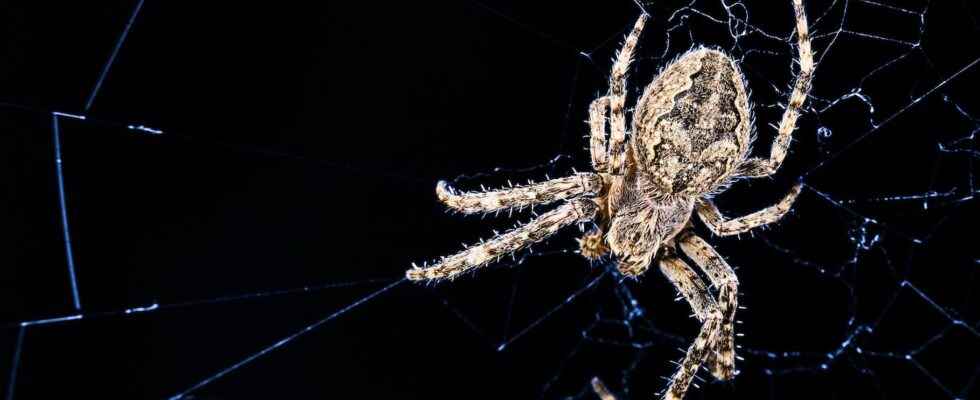“Beasts of science” is like a collection of stories. Beautiful stories that tell the living in all its freshness. But also in all its complexity. A parenthesis to marvel at the treasures of the world. For this new episode, let’s discover a little beast not always the most popular: the spider.
You will also be interested
[EN VIDÉO] How do spiders weave their webs? Spiders are fascinating. Despite a small brain, they are capable of complex behaviors. Like building a web. Using infrared cameras and artificial intelligence, researchers at Johns Hopkins University (USA) have managed to document the process. A kind of dance whose rules now need to be clarified. And to understand how they are orchestrated by the spider’s brain. (in English) © Johns Hopkins University
To overcome your fear, you have to know how to tame it. This is the advice given to me by the psychologist I consulted a few years ago. Getting to know spiders better was supposed to help me overcome my archanophobia. I’arachnophobiafor those who have the good fortune to ignore it, it is the fear of spiders. An irrational fear that became really overwhelming for me… when I moved in on my own. And that I decided to take head on the day when I came to empty an entire can of insecticide on one of these beasts which had made its way to my bathtub !
To tell you everything, I have come a long way. Because, in the arachnophobic genre, I was at the stage of the real anxiety attack. I remember this magazine that I was never able to open. Just because there was a picture of a spider on the cover. It was therefore first necessary to agree to simply write the word. In pen. On a keyboardofcomputer. Agree to look at pictures of spiders. Then videos. Cool videos, that goes without saying. Not those horrors found today on social networks .
And then I was able to learn to discover theuniverseof the spider. His canvas. His manners. Its particularities physical . Hey, did you know that spiders don’t have ears? At least, not in the sense that… we mean it! However, this does not seem to prevent some of them, not only from feeling the vibrations of their prey when they get caught in their web, but also to literally react to sounds. Thanks to nerve receptors located on their feet and which work a bit like ears. Capturing the sound wavesand transmitting impulses to the spider brain .
The orb weaving spider, Larinioides sclopetarius, uses its web as a giant extra ear.
“By outsourcing its acoustic sensors to its web it permits the araneid spider to increase its sound-sensitive surface area enormously, up to 10,000 times greater than the spider itself” pic.twitter.com/JIyKqDHv49
—Stone Age Herbalist (@Paracelsus1092) November 2, 2021
Hear its prey arrive, but also its predators
Researchers even now believe that spiders — at least some of them — have acute hearing. They could hear us talking from across the room. Even if what they hear would sound more like a poor quality telephone conversation. And it must be admitted, nothing says that spiders are really interested in what we can say…
Where we can begin to ask ourselves the question ofintelligence of these little beasts, it is when we notice that they are able to weave webs that will serve as sound amplifiers. A bit like the antennae of radio telescopesthat we point to the sky in the hope of capturing a alien message .
Spiders of a species that English speakers call “bridge spider » or ” graycross-spider » — understand, “spider bridge” Where “gray cross spider” — and who live all over Europe and a large part of North America, have, it seems, learned to weave webs which serve as outer ear . Canvases that could turn out to be the “ eardrums nature’s most efficient.
ThoseSpider websmeasure up to 10,000 times their body size. And their vibrations can be transmitted tosensorsnerves — which are nothing more than kinds of little hairs — on the legs of theirarchitects. To make them hear birds or crickets located several meters away. Up to no less than ten meters even, imagine the researchers. It remains to be confirmed that the spiders are indeed able to distinguish the sounds produced by one and the other. The sounds produced by the predator and the prey. But it would seem that these little beings are definitely… not so stupid!
Interested in what you just read?
